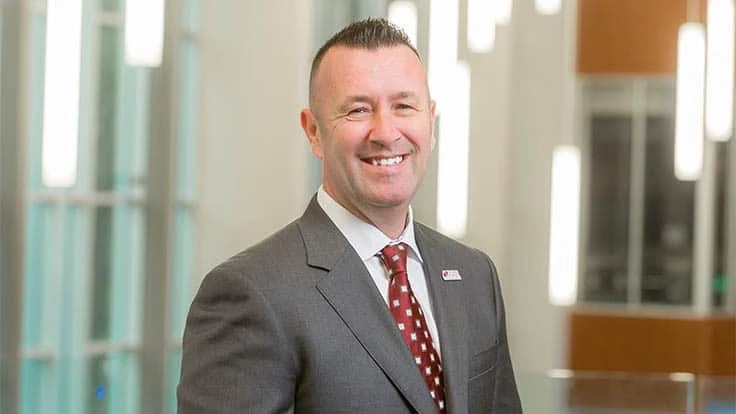
AIB International
This week, AIB International released some figures from a study, revealing food and beverage industry sentiment on COVID-19 impacts and an outlook on future pandemic preparedness. The data is interesting to say the least.
According to the study, 78% of food and beverage executives say they are actively preparing for a future global pandemic, with 30% expecting another one within the next four years and 50% expecting one within the next decade.
The study surveyed 325 senior-level North American executives at leading food and beverage manufacturing companies, retailers, distributors and other supply chain partners.
We caught up with Steve Robert, global vice president, sales, marketing and product innovation at AIB International, to talk about the findings and some practical takeaways for the food industry.
Quality Assurance & Food Safety magazine: The 30% and 50% numbers really leap out at you. What do you think is behind those figures?
Steve Robert: Maybe the 30% of those folks expecting one in the next four years have some pretty compelling reasons to believe what they do. Maybe it’s the lack of preparedness they endured. Maybe it’s the haunting memories of having to not sleep for months on end and trying to get ready and get their organization teed up with supplies and the things that they need to keep their businesses operating and keep their employees safe. I think those are some of the natural things that kind of surfaced from my perspective.
QA: What are some ways these folks can prepare for a future pandemic if and when it happens?
SR: It’s especially important that facilities not just rely on the corporate office but look at their own operations because corporate will typically give a framework but not specifics at the plant level. When the pandemic hit, there were emails, internal meetings, phone calls. There was a plethora of information kind of going back and forth, but many didn’t have a central repository, and people really had to reference back to these prior communications rather than have access to a well-documented and cohesive plan. The plant level kind of abandoning their own protocols and really kind of focusing on that corporate communication isn’t what you want. You want those two to kind of work in harmony. The bottom line is prioritizing employee health and well-being to help keep the supply chain moving while ensuring food safety. It’s just that simple.
QA: In the study, companies with revenue of less than $250 million said they felt less prepared than larger companies for the COVID-19 pandemic. Why might that be?
SR: The bottom line is companies of all sizes can adequately prepare. It’s really all about the commitment of the team to make it happen. Make sure that there’s alignment, that you’re not working in silos — the team is leaning in together to drive a cohesive plan. I don’t think there’s anything preventing us from doing our very best. It’s really all about the commitment and making sure you have the resources to execute against it.
QA: What are some of the lessons learned from all of this?
SR: The majority were not prepared. We had a plethora of customers and non-customers coming to us for guidance. The crisis plans for many of the companies in the food and beverage supply chain were really specific to food safety — how to shut down the line, how to initiate a recall. And occupational safety was considered, but a pandemic wasn’t on their radar. That’s a huge issue. It just needs to be a singular, cohesive approach that folks can all access.
QA: What statistic really jumped out at you?
SR: For me, that 30% percent of [those surveyed expected a pandemic in four years], that was very, very powerful and is the one that resonates with me the most.
QA: AIB is doing a webinar May 12 to share more of the findings of the study. What all will be covered?
SR: We’ll be going through the findings of the research that we did, and it’s really kind of covering the details and going a little bit deeper into those stats. We’re going to have Anne Coulter, managing director, Research Strategy Group, and her team, who led the research, really come through and provide the details on the questions asked and the associated responses to give a better perspective of what the industry truly faced when the pandemic hit and what people are thinking about as they prepare for future situations.
Latest from Quality Assurance & Food Safety
- Chef Robotics Introduces Pat-Down Capability for Meal Presentation and Sealing
- USDA Launches Regenerative Pilot Program
- Indoor Ag-Con Adds Food Safety Track to Conference Lineup
- IDFA Recognizes Federal Officials for Support of U.S. Dairy Industry
- Tetra Pak Acquires Bioreactors.net
- Fresh Del Monte Receives Rabobank Leadership Award
- São Paulo Earns Guinness World Record for Largest Municipal Food Security Program
- KPM Analytics Releases Ready-to-Use NIR Calibration Packages





